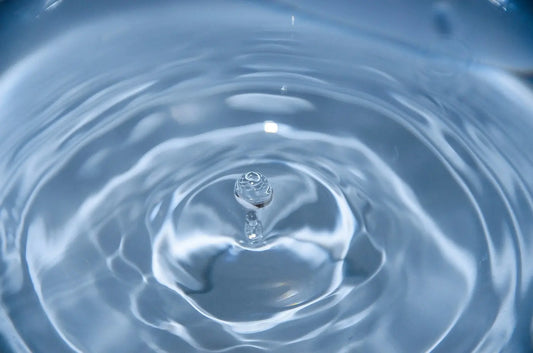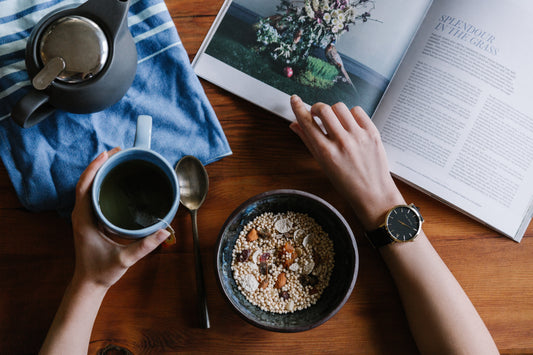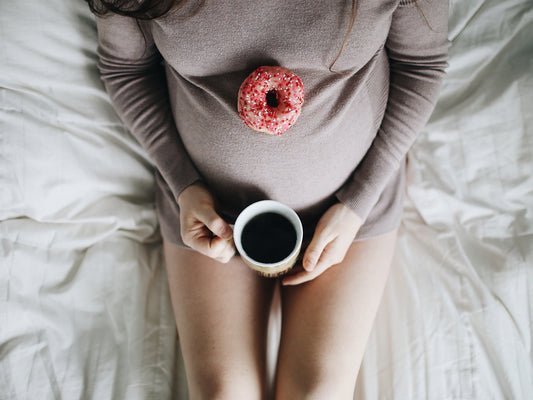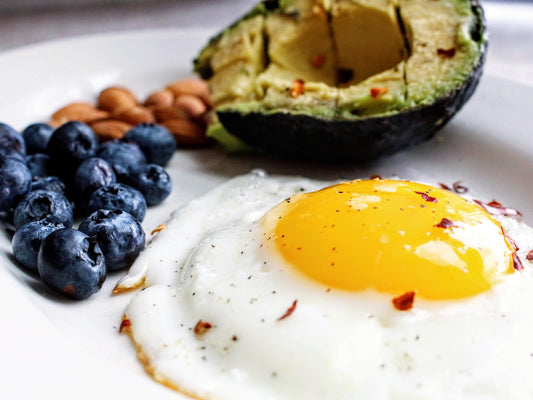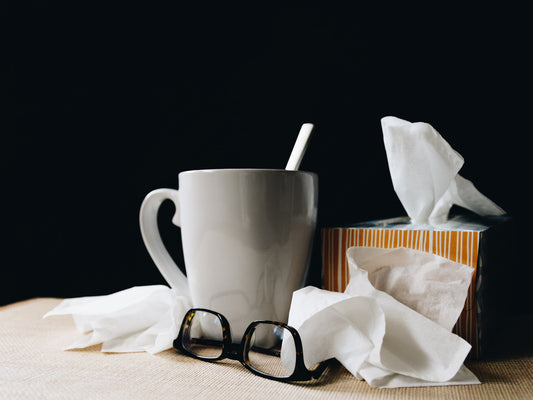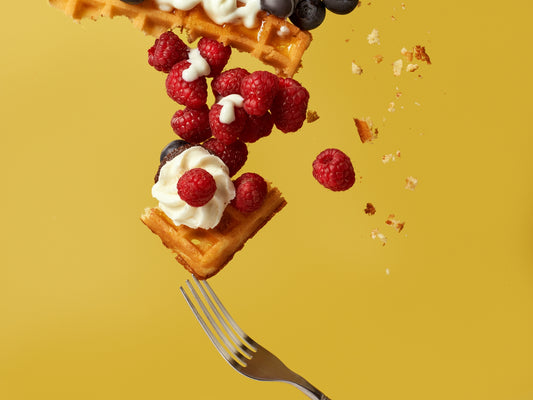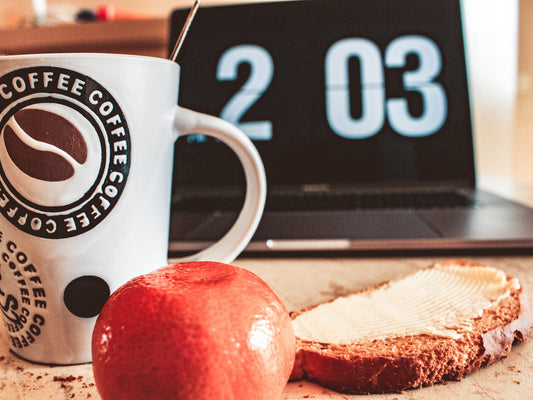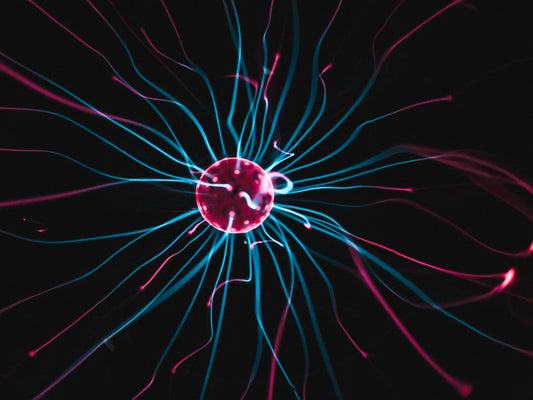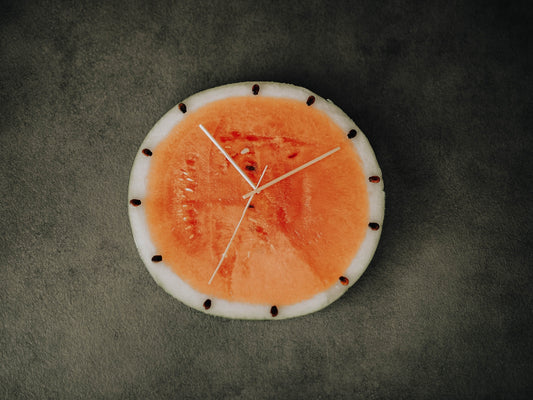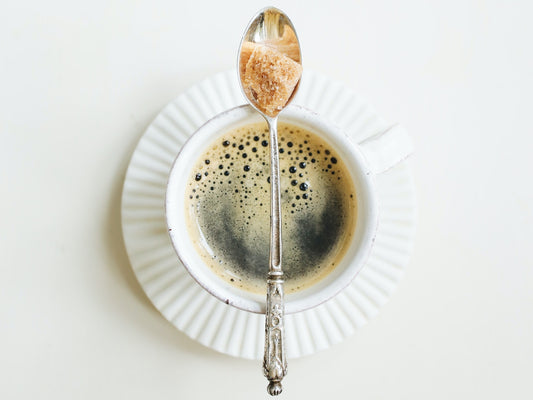Your body constantly processes electrolytes and liquid throughout the day. Even while you sleep, you are putting water and minerals to use for various functions, including digestion, energy production, and temperature regulation (sweating).
You replenish those electrolytes and fluids through your diet. If you’ve wondered which drinks are the most helpful for your goals, this guide will help. First, a little background...
What Are Electrolytes?
We go way deep into this in another article, so we’ll sum it up here.
Electrolytes are “ions” within the body that helps to keep fluid balance in our cells. They also control the PH of our body and normalize the nerve, heart, and muscle function. They include:
As you might imagine, our bodies need these ions to function at their optimal levels. However, what electrolytes really matter and how much of each we really need is something of a debate.
Why Electrolytes Matter
Electrolytes are essential to your body’s hydration. Without minerals like sodium and potassium, your body can’t make use of the water you consume.
Within natural drinking water, you will find trace amounts of sodium, potassium, and magnesium. But if someone did not get enough of these minerals, they could get sick, experience dehydration, muscle cramping, and spasms. [2]
The issues that could result vary by which electrolyte you’re talking about. For example, most people know of the dangers of having too much sodium, which can lead to issues like high blood pressure or heart issues. But if you were to have too little sodium in your blood, it can lead to an even worse condition known as hyponatremia, which is rare (it primarily occurs among endurance athletes who overconsume water) but potentially fatal. [3]
The bottom line: Electrolyte imbalances can harm the body through causing major issues with blood pressure, the nerves, and the muscles. To be properly hydrated, you need to consume water and an appropriate amount of electrolytes.
Who Needs More Electrolytes?
If you ask ten different people, you will get ten different answers. That’s because each person’s hydration needs are different. However, one group nearly every expert agrees needs more electrolytes is high level athletes. [2]
Research indicated that athletes, or anyone, who worked vigorously for over an hour sweating could use rehydration through more than just water. Intense exercise proved to require a higher amount of electrolytes than you would normally find in a typical diet plus tap water. [4]
Sources of Electrolytes
Electrolytes can be found in food and drinks alike. (You can find a list of 12 foods high in electrolytes here.) If hydration is a concern, then a beverage containing electrolytes is an efficient option, since it will contain both the electrolytes and liquid your body can put to use.
The Best Drinks to Replenish Electrolytes
If you want a drink to help top off your electrolyte levels, there are four good options. We’ve listed each alongside info about who they are ideal for.
1. Hydration mixes

An ideal hydration mix will be based off the World Health Organization’s standard for rapid rehydration. This standard specifies specific proportions of sodium, potassium, and glucose that, when consumed alongside water, allows the body to absorb the fluids more efficiently. (Full disclosure: Our product, Hydrant, is a part of this category.)
Hydration mixes are useful for:
- People who want to “top off” their fluid and electrolyte levels so that they know they’ve taken every step to ensure their hydration is at an optimal level, but do so with fewer calories.
- People who feel short on energy throughout the day. (Fatigue and foggy headedness are common side effects of mild dehydration.)
- People who just plain hate to drink water. Some people find water tasteless and boring, and view drinking the recommended amount per day as a real chore. If that sounds like you, a hydration powder is a good option because it enables your body to make better use of the water they do consume.
- People looking for a low-calorie way to bounce back from a night out with friends.
2. Natural Fruit Juices

Drinks like Coconut Water, Orange Juice, or Lemon-Infused Water are all hydrating options that contain electrolytes. They are a great choice for anyone who values drinking things that are only from nature. But there are a few potential pitfalls:
- First, some of these juices can be very high in calories. While coconut water typically comes in at 45 calories per serving, other fruit juices like orange juice contain three times that amount.
- Second, fruit juices may be less “natural” than you think. Consider that if your O.J. comes from a plastic bottle, it probably got there through...
“...a process called “deaeration,” in which the oranges are picked, the oranges are squeezed, the juice is heated to eliminate bacteria, and then the juice is kept in vast, zillion-gallon tanks from which oxygen is eliminated. This allows the juice to not spoil for up to a year. The downside to this process is that the juice loses its taste, so when the juice is ready to be packaged for consumption, flavor packets are added to give it its consistent, “pure,” orangey taste. Fragrance companies responsible for the same formulas used for perfumes come up with the right taste concoctions that you and I know as orange juice.”
That description comes from Food Republic, which notes that juice maker Tropicana describes basically the exact same process on their site.
- Finally, consider that while a natural sugar may make you feel better about the drink you’re consuming, science shows that when it comes to speeding up the absorption of fluids within the body, the type of carbohydrate does not appear to matter. [5]
3. Sports Drinks

Sports drinks are a good option for very active people. Research shows that a sports drink can be helpful to anyone who exercises for 90 minutes or more in a single session. Someone training at that level is more likely to burn a lot more calories throughout the day, and therefore can take on the extra caloric load that comes inside a sports drink. (A bottle of a typical sports drink contains 34 grams of sugar, where an electrolyte powder like ours contains just 6 grams.)
4. Pedialyte

Pedialyte is a good option for ill or dehydrated children, although it’s recently gotten some use as a hangover cure used by certain celebrities. Pedialyte has about half of the sugar and calories of a traditional sports drink, and many more electrolytes per serving. (Pedialyte’s calorie total is higher than that of some hydration powders, however.) The flavor can feel very “kid” like, however.
Why Sugar-Free Sports Drinks Don’t Work
If the body needs electrolytes and water, but calories are a concern, then a logical conclusion is: Why don’t people just drink sugar-free electrolyte drinks?
Unfortunately, it isn’t so easy. Research shows that the body can absorb water more quickly and easily in the presence of glucose [6]. So sugar-free sports drinks they don’t work as effectively at getting water into your bloodstream faster.
How to Tell if an Electrolyte Replenishing Drink is Right for You
As we said earlier: Each person’s hydration needs are different, and will vary widely according to their body and activity levels. If you want to learn more about some of the products that might be right for you, take our hydration quiz below. It’s free, it’s fast, and it will help point you toward a solution that matches your lifestyle.
Other stories about food & drinks
If you want to read more about hydration in relation to food & drinks, click here.
Is your routine dehydrating?
Are you concerned about your own hydration levels? Take the quiz below to find the best Hydrant for your hydration routine.














